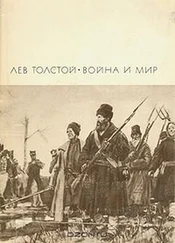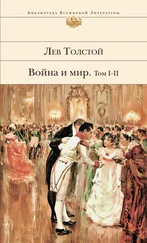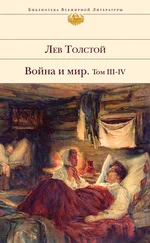| Prince Andrew, being always near the commander in chief, closely following the mass movements and general orders, and constantly studying historical accounts of battles, involuntarily pictured to himself the course of events in the forthcoming action in broad outline. |
Князь Андрей, постоянно находясь при главнокомандующем, следя за движениями масс и общими распоряжениями и постоянно занимаясь историческими описаниями сражений, и в этом предстоящем деле невольно соображал будущий ход военных действий только в общих чертах. |
| He imagined only important possibilities: |
Ему представлялись лишь следующего рода крупные случайности: |
| "If the enemy attacks the right flank," he said to himself, "the Kiev grenadiers and the Podolsk chasseurs must hold their position till reserves from the center come up. |
"Ежели неприятель поведет атаку на правый фланг, - говорил он сам себе, - Киевский гренадерский и Подольский егерский должны будут удерживать свою позицию до тех пор, пока резервы центра не подойдут к ним. |
| In that case the dragoons could successfully make a flank counterattack. |
В этом случае драгуны могут ударить во фланг и опрокинуть их. |
| If they attack our center we, having the center battery on this high ground, shall withdraw the left flank under its cover, and retreat to the dip by echelons." So he reasoned.... |
В случае же атаки на центр, мы выставляем на этом возвышении центральную батарею и под ее прикрытием стягиваем левый фланг и отступаем до оврага эшелонами", рассуждал он сам с собою... |
| All the time he had been beside the gun, he had heard the voices of the officers distinctly, but as often happens had not understood a word of what they were saying. |
Всё время, что он был на батарее у орудия, он, как это часто бывает, не переставая, слышал звуки голосов офицеров, говоривших в балагане, но не понимал ни одного слова из того, что они говорили. |
| Suddenly, however, he was struck by a voice coming from the shed, and its tone was so sincere that he could not but listen. |
Вдруг звук голосов из балагана поразил его таким задушевным тоном, что он невольно стал прислушиваться. |
| "No, friend," said a pleasant and, as it seemed to Prince Andrew, a familiar voice, "what I say is that if it were possible to know what is beyond death, none of us would be afraid of it. |
- Нет, голубчик, - говорил приятный и как будто знакомый князю Андрею голос, - я говорю, что коли бы возможно было знать, что будет после смерти, тогда бы и смерти из нас никто не боялся. |
| That's so, friend." |
Так-то, голубчик. |
| Another, a younger voice, interrupted him: |
Другой, более молодой голос перебил его: |
| "Afraid or not, you can't escape it anyhow." |
- Да бойся, не бойся, всё равно, - не минуешь. |
| "All the same, one is afraid! |
- А всё боишься! |
| Oh, you clever people," said a third manly voice interrupting them both. "Of course you artillery men are very wise, because you can take everything along with you-vodka and snacks." |
Эх вы, ученые люди, - сказал третий мужественный голос, перебивая обоих. - То-то вы, артиллеристы, и учены очень оттого, что всё с собой свезти можно, и водочки и закусочки. |
| And the owner of the manly voice, evidently an infantry officer, laughed. |
И владелец мужественного голоса, видимо, пехотный офицер, засмеялся. |
| "Yes, one is afraid," continued the first speaker, he of the familiar voice. "One is afraid of the unknown, that's what it is. |
- А всё боишься, - продолжал первый знакомый голос. - Боишься неизвестности, вот чего. |
| Whatever we may say about the soul going to the sky... we know there is no sky but only an atmosphere." |
Как там ни говори, что душа на небо пойдет... ведь это мы знаем, что неба нет, a сфера одна. |
| The manly voice again interrupted the artillery officer. |
Опять мужественный голос перебил артиллериста. |
| "Well, stand us some of your herb vodka, Tushin," it said. |
- Ну, угостите же травником-то вашим, Тушин, -сказал он. |
| "Why," thought Prince Andrew, "that's the captain who stood up in the sutler's hut without his boots." He recognized the agreeable, philosophizing voice with pleasure. |
"А, это тот самый капитан, который без сапог стоял у маркитанта", подумал князь Андрей, с удовольствием признавая приятный философствовавший голос. |
| "Some herb vodka? Certainly!" said Tushin. "But still, to conceive a future life..." |
- Травничку можно, - сказал Тушин, - а всё-таки будущую жизнь постигнуть... |
| He did not finish. |
Он не договорил. |
| Just then there was a whistle in the air; nearer and nearer, faster and louder, louder and faster, a cannon ball, as if it had not finished saying what was necessary, thudded into the ground near the shed with super human force, throwing up a mass of earth. |
В это время в воздухе послышался свист; ближе, ближе, быстрее и слышнее, слышнее и быстрее, и ядро, как будто не договорив всего, что нужно было, с нечеловеческою силой взрывая брызги, шлепнулось в землю недалеко от балагана. |
| The ground seemed to groan at the terrible impact. |
Земля как будто ахнула от страшного удара. |
| And immediately Tushin, with a short pipe in the corner of his mouth and his kind, intelligent face rather pale, rushed out of the shed followed by the owner of the manly voice, a dashing infantry officer who hurried off to his company, buttoning up his coat as he ran. |
В то же мгновение из балагана выскочил прежде всех маленький Тушин с закушенною на бок трубочкой; доброе, умное лицо его было несколько бледно. За ним вышел владетель мужественного голоса, молодцоватый пехотный офицер, и побежал к своей роте, на бегу застегиваясь. |
| CHAPTER XVII |
XVII |
| Mounting his horse again Prince Andrew lingered with the battery, looking at the puff from the gun that had sent the ball. |
Князь Андрей верхом остановился на батарее, глядя на дым орудия, из которого вылетело ядро. |
| His eyes ran rapidly over the wide space, but he only saw that the hitherto motionless masses of the French now swayed and that there really was a battery to their left. |
Глаза его разбегались по обширному пространству. Он видел только, что прежде-неподвижные массы французов заколыхались, и что налево действительно была батарея. |
| The smoke above it had not yet dispersed. |
На ней еще не разошелся дымок. |
| Two mounted Frenchmen, probably adjutants, were galloping up the hill. |
Французские два конные, вероятно, адъютанта, проскакали по горе. |
| A small but distinctly visible enemy column was moving down the hill, probably to strengthen the front line. |
Под гору, вероятно, для усиления цепи, двигалась явственно-видневшаяся небольшая колонна неприятеля. |
| The smoke of the first shot had not yet dispersed before another puff appeared, followed by a report. |
Еще дым первого выстрела не рассеялся, как показался другой дымок и выстрел. |
| The battle had begun! |
Сраженье началось. |



